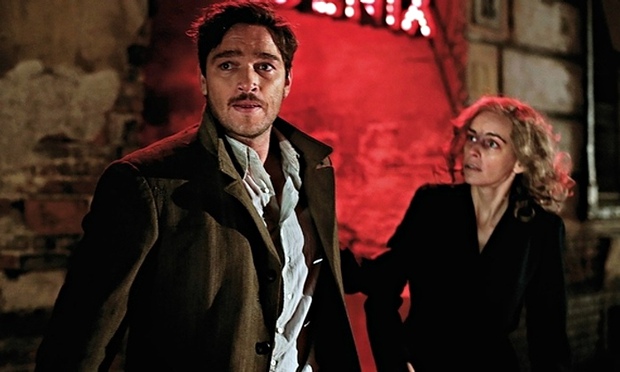 The recent German film Phoenix poses a single question. Who are we if we lose the characteristics that defines us? In the case of the film, it is the face.
The recent German film Phoenix poses a single question. Who are we if we lose the characteristics that defines us? In the case of the film, it is the face.
Set against the backdrop of post war Germany, A young woman, Nelly, who was once known as an internationally renowned singer, is liberated from the Nazi concentration camps. As with many others she was shot and left for dead by the retreating troops. Fortunately she lived but has severe facial injuries and has to undergo reconstructive surgery. Rather than choosing the facial characteristics of a famous person she insists on being made to look the same as before. The results see her have some similarities to her old self but not completely. As the sole survivor of her family she is about to inherit a large sum of money. All she wants is to go back to her husband, Johnny, who believes her dead. Afraid of what she might find, she takes on the name of her deceased sister and travels to her home town. Although her husband doesn’t recognise her, he sees enough of a similarity to his wife to instigate a plan to defraud the authorities and obtain the inheritance. Nelly agrees to it to try to reconnect with Johnny.
In the pivotal role of Nelly is Nina Hoss. Her performance is quite brilliant as the woman who doesn’t recognise her own reflection. In the full face bandages, both pre and post op, she is withdrawn and afraid all of the time. As the outer layers are slowly shed the character blossoms. Her confidence grows with each new patch of skin exposed to the world. Hoss gives a subtle and engaging performance in the transition during the healing process. The emotions are never far from the surface and you feel for her as she struggles to gain some small hold on normal life.
 Her husband Johnny (Ronald Zehrfeld) is the opposite. On the outside he appears to be calm and confident, but as we see more of him, smaller and more telling characteristics are brought to the fore. He is always shifting and on edge as if he knows something is happening but isn’t quite sure what it is.
Her husband Johnny (Ronald Zehrfeld) is the opposite. On the outside he appears to be calm and confident, but as we see more of him, smaller and more telling characteristics are brought to the fore. He is always shifting and on edge as if he knows something is happening but isn’t quite sure what it is.
The backdrop if the city in ruins after the extended conflict mirrors the mood of Nelly. She doesn’t feel like herself anymore as she struggles with her new face. Similarly, the city does not look the same. Whole areas have been razed to the ground including her own home.
The film uses mood and visuals to convey much of its story. The dialogue is kept to a minimum and it is the strength of the principal actors that successfully carry the film. As with any good actor a glance or nod in the right place can convey so much more than an entire paragraph of text.
It may seem a little slow at times but is really worth sticking with. The final third of the film ups the tension levels and rewards your patience. It all fits together well and the somewhat sparse scenes in the middle of the film take on far greater significance.
Overall, a slow and methodical drama that pays off your continued interest. Recommended.
- Moviescramble podcast – Ep 76: Hit Man and The Killer - November 18, 2024
- Moviescramble podcast – Deleted scenes Ep 75 - November 18, 2024
- Hugh Bonneville surprises young patients at Glasgow’s Royal Hospital for Children for MediCinema Screening of Paddington in Peru - November 7, 2024




